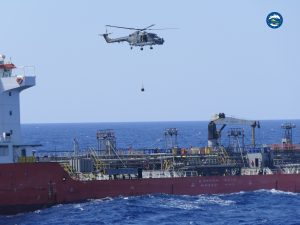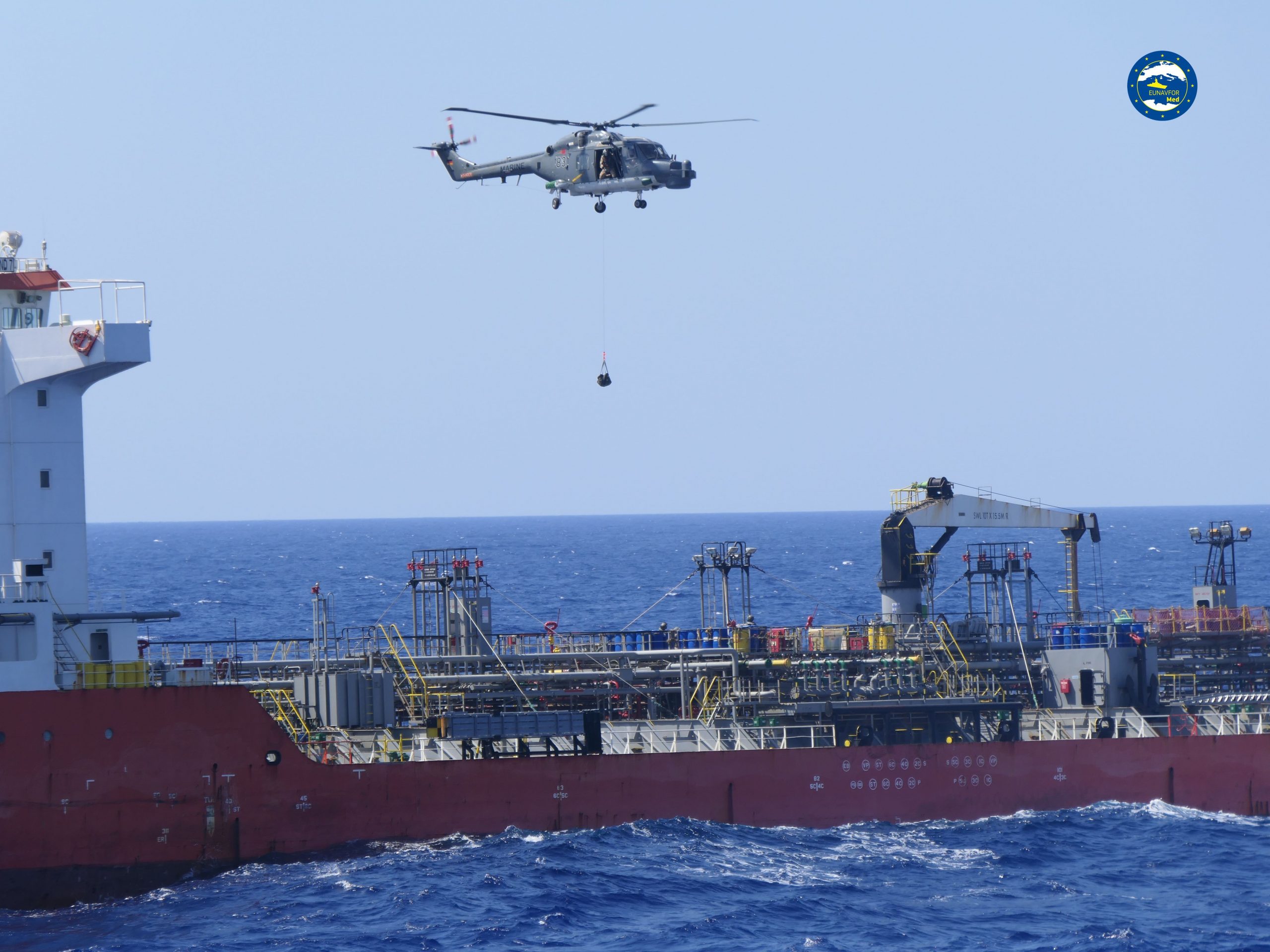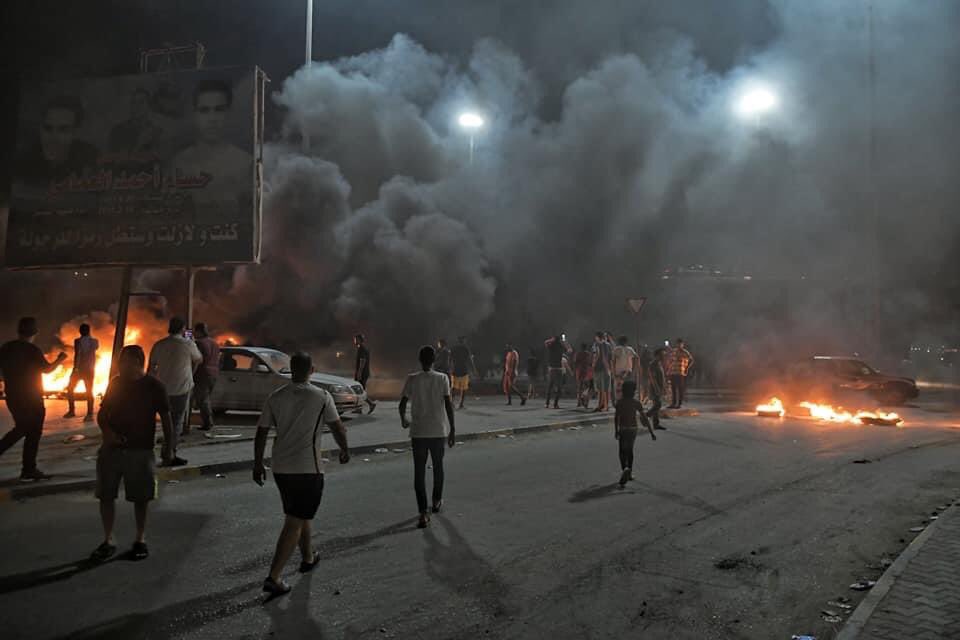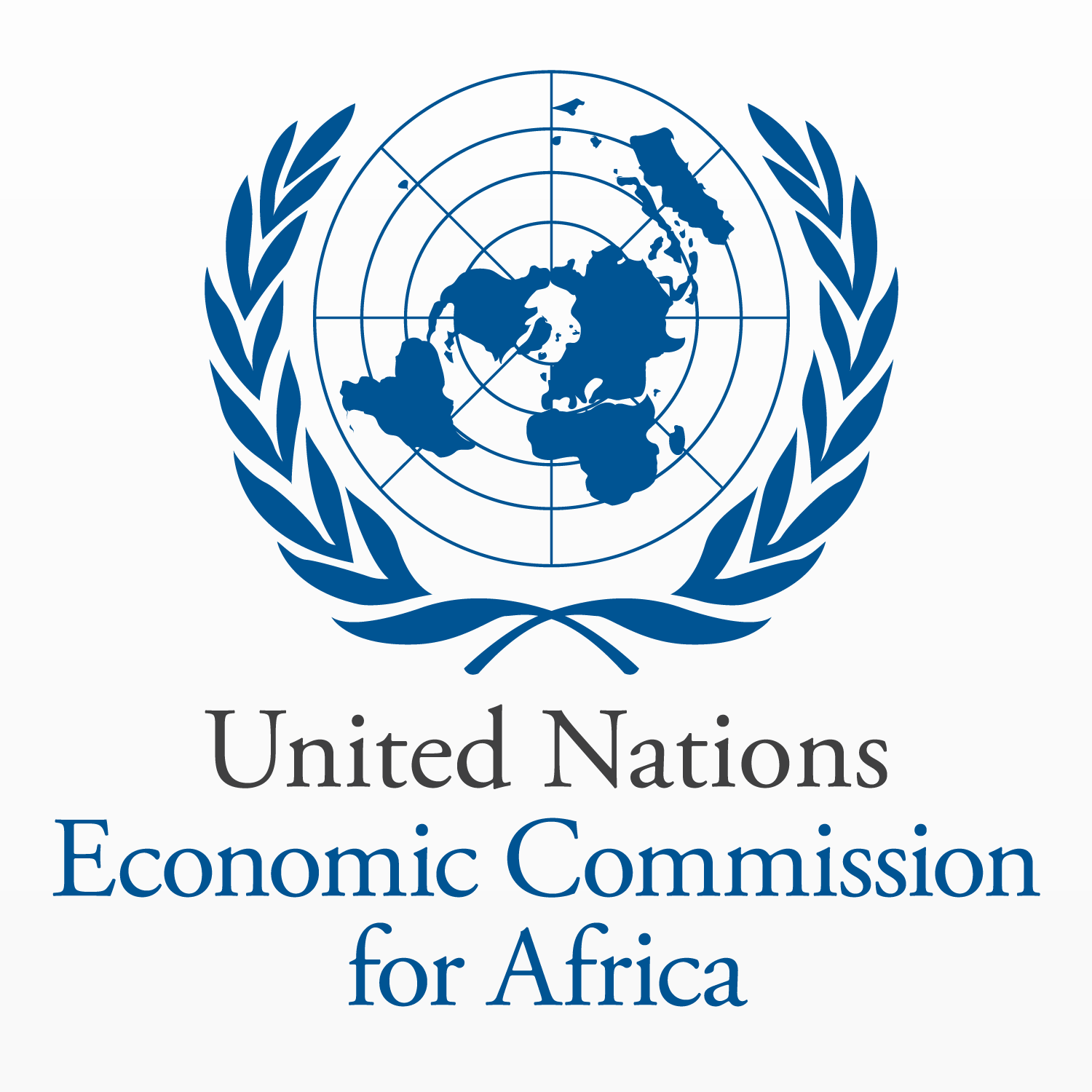By Sami Zaptia.

London, 11 September 2020:
Operation EUNAVFOR MED Irini reported yesterday that it had boarded and inspected the Merchant Vessel Royal Diamond 7 early in the morning for suspected violation of the UN arms embargo on Libya. The boarding team of an Irini ship boarded the vessel at 7 a.m. in international waters, 150 km north of the Libyan city of Derna (Cyrenaica).
IRINI reported that the vessel departed from the port of Sharjah in the United Arab Emirates and was heading to Benghazi in Libya. MV Royal Diamond 7 was carrying a cargo of Jet fuel, likely to be used for military purposes. This fuel is considered as “military material” by the UN and therefore UN Security Council Resolution 2292 (2016) and 2526 (2020) apply.
The boarding operation was carried out by the German frigate FGS Hamburg with the support of the flagship of Operation Irini, the Italian frigate ITS Margottini. The Force Commander, Admiral Ettore Socci, conducted the operation from onboard the flagship and has denied MV Royal Diamond 7 access to Libyan territorial waters and is diverting the vessel to a port of the European Union for further investigation.
Irini was operating on information provided by UN Panel of Experts on Libya, which highlighted the suspicious nature of this cargo.
Irini said that its operation ‘‘is a concrete demonstration of the EU’s commitment to support the Berlin process, restore stability in Libya and bring peace to its population’’.
IRINI has come in for a huge amount of criticism with the widely acknowledged amassing of weapons and mercenaries in Libya, in general, and along the de facto temporary Sirte-Jufra ceasefire line by both warring Libyan sides – seen as evidence of its failure.
It has also been reported that IRINI was refused boarding rights to some ships approaching the Libyan coastline – believed to be transporting weapons.
The operation is also criticised for failing to stop tens if not hundreds of cargo flights into Libya, for both sides, believed to be transporting weapons. Moreover, critics say that EU and NATO members are among states that have broken the UN Libya arms embargo.
In August, during his meeting with German Foreign Minister Heiko Maas in Tripoli, Libya’s internationally recognized prime minister, Faiez Serraj said IRINI had not produced ”positive results”.
His government’s press statement on IRINI said ”With regards to the European operation IRINI to implement the arms embargo on Libya, Serraj said that this operation did not stop the air bridge to transport weapons, equipment and mercenaries to the other (Hafter’s) side, and that there are countries that say that the operation produces positive results, while the reality, he added, confirms the contrary”.
In response, IRINI reported that from 4 May, when the Operation started its activity at sea, Irini assets have patrolled the central Mediterranean and performed 650 hailings and made 12 friendly approaches (visits on board of merchant vessels).
The Operation says it has monitored suspect vessels at sea in more than ten ports and landing points. It detected 80 suspect flights possibly carrying military related cargos back and forth to Libya, monitoring 25 airports and landing strips.
It adds that it is contributing to the UN arms embargo and the prevention of oil smuggling with 14 special reports to the United Nations Panel of Experts concerning both sides of the conflict in Libya, in an impartial manner. These results were possible thanks to SatCen (European Union Satellite Centre), which provided more than 230 sets of satellite images at Irini’s requests.
https://www.libyaherald.com/2020/08/19/irini-has-produced-significant-results-in-deterrence-in-arms-and-oil-smuggling-and-has-been-impartial-irini-operation-commander-agostini/
https://www.libyaherald.com/2020/08/19/serraj-meets-german-foreign-minister-maas-accepts-ceasefire-with-guarantees-criticises-irini/
https://www.libyaherald.com/2020/04/01/eu-launches-operation-irini-to-enforce-libya-arms-embargo-ends-operation-sophia/









